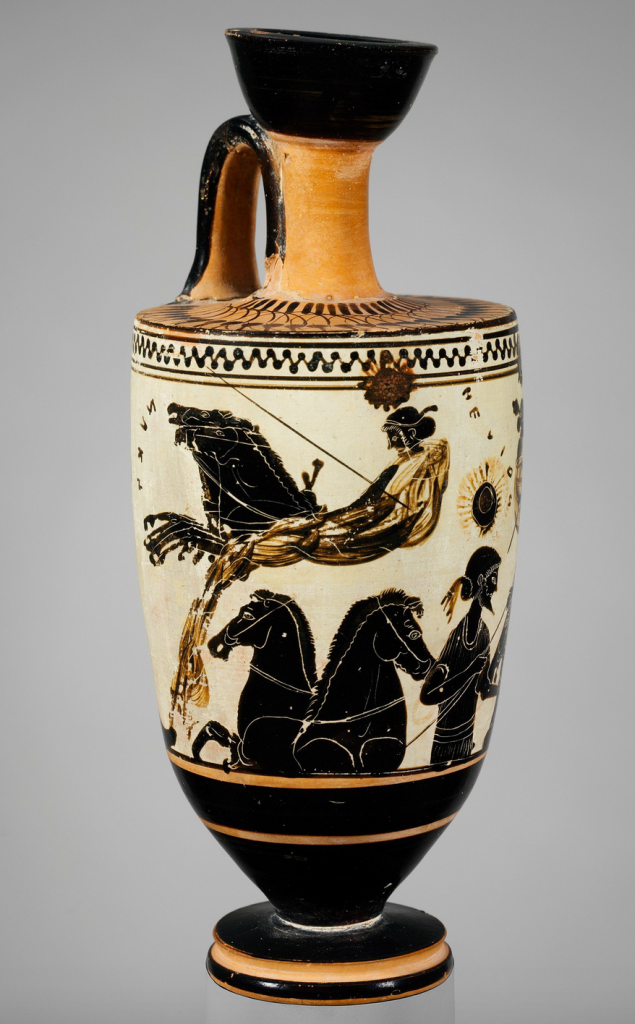Nyx (/nɪks/;[1] Greek: Νύξ, Nyks, “Night”;[2] Latin: Nox) is the Greek goddess (or personification) of the night…
So opens a Wikipedia article that caught my eye the other day, because of the theory of religion buried in it. For by means of a misleadingly simple parenthetical aside, one that hearkens back to a much earlier approach to understanding religion, the writer tells us a great deal about their thoughts on why people tell tales of the gods.
I say “much earlier” because the claim that religion arose from the pre-historic personification of natural phenomena (or what some today would just term anthropomorphism) was an element of the once popular approach to religion championed by F. Max Müller (1823-1900), among the figures commonly credited with helping to establish what then might have been called either comparative religion or the science of religion. And, through who knows what path, that once common view has somehow made its way into a Wikipedia post about an ancient Greek goddess who would ride her chariot across the sky, chasing the sun, and bringing night in her wake.
Today, there’s plenty of other views on religion from which to choose, of course (explanations of its origins or contemporary function) — some stated and supported in a manner that would lead some of us to call them scholarly theories of religion. In fact, I’d go so far as to argue that without a theory of religion we wouldn’t even be talking about it — that is, we wouldn’t understand just some things as being grouped together, inasmuch as they struck some of us as religious, in distinction from other things that are not. But too often the heavy lifting that a theory of religion does is so normalized, so routinized, that we fail to remember that our claims about the world are based on a theory, one that someone came up with to help them understand something that struck them as curious or anomalous.
And here I return to the parenthetical aside, which, as often happens, is just asserted, as if its commonsense and uncontroversial, as if the equivalency it claims was a mere description of a fact, as opposed — at least as I’d hope a scholar would see it — to being but one option among many and thus something for which one has to argue.
(By the way, here’s a parenthetical aside of my own: I wonder if whomever added that would apply it to all religion or, instead, is such personification just something that explains other people’s tales…?)
